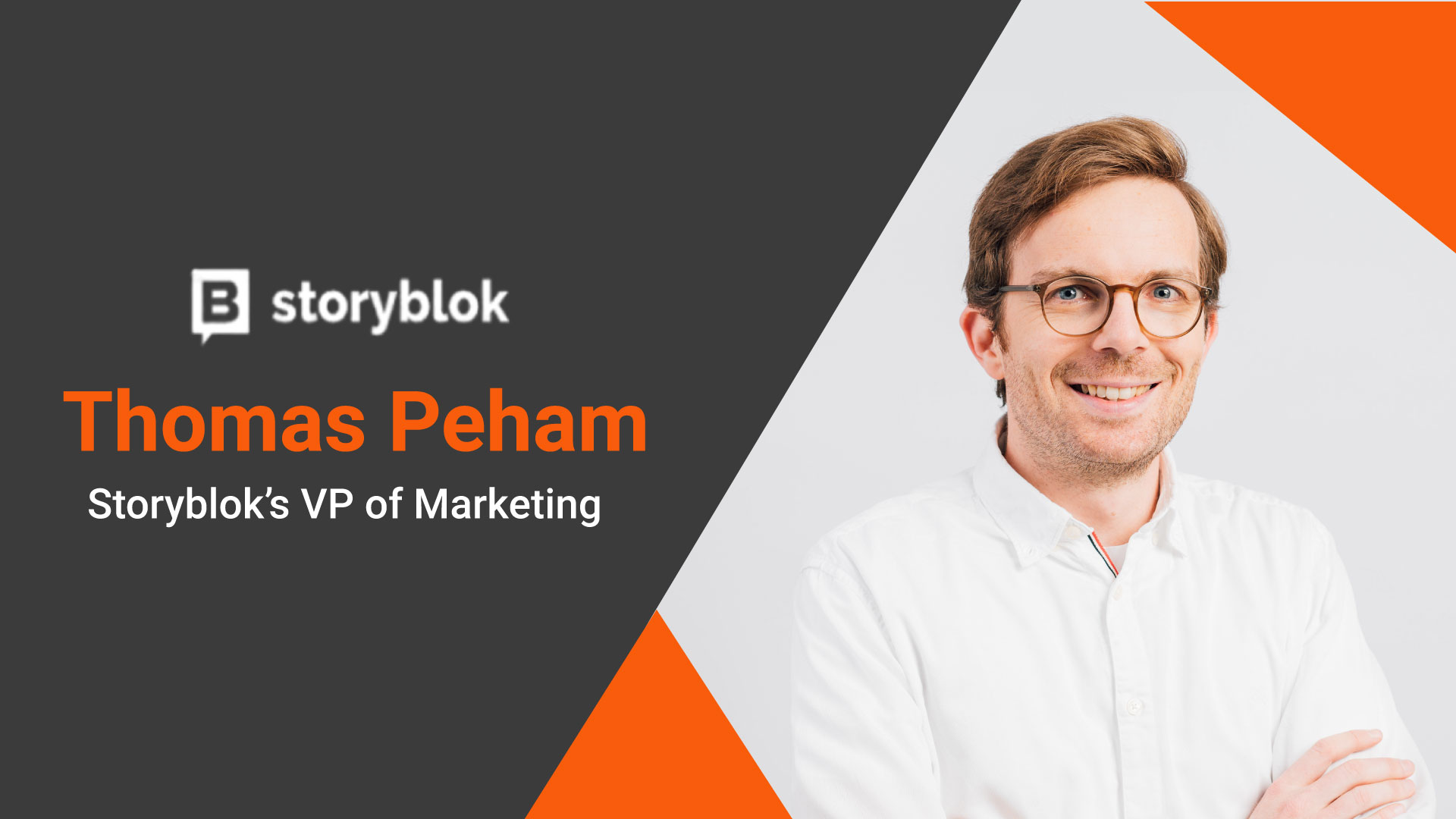

content managementmarketing
Martech Edge Interview with Thomas Peham, VP of Marketing, Storyblok
You have an impressive experience in marketing across various industries. Can you tell me a bit about your career path and the lessons learned along the way?
You can call me the accidental marketer. I ended up in marketing which I never planned.I studied business administration as I didn't really know what else to pursue in life but becoming a manager sounded interesting.
During my study program, I became interested in HTML and building websites. I started playing around with HTML and CSS and soon after I built a few websites for local clubs and organizations for free.
A few months later, I got my first paid gig building a website for a local business. Through building websites, I got into SEO and wrote my bachelor thesis about SEO for small businesses.
This ultimately led me to my first ‘real job’ in marketing - which was at a full service marketing agency. There I learned everything from traditional marketing to digital marketing and building websites for big corporations.
The concept “Headless CMS” is slowly gaining traction but known to the few. Can you elaborate more on the concept?
A Headless Content Management System (CMS) represents a significant shift from traditional CMS architectures. Unlike traditional CMSs where the content management and content delivery layers are tightly coupled, a Headless CMS separates the content management back end from the front-end presentation layer. This architecture allows developers to use APIs to deliver content to any front-end system, be it websites, mobile apps, or other media, making it a versatile choice for content delivery across multiple platforms.
The ‘headless’ in Headless CMS refers to the removal of the ‘head’ (the front end, or the website) from the ‘body’ (the back end, or the content source). This decoupling allows developers and content creators to focus more on the content itself rather than worrying about how it will be displayed or managed on a specific platform. Content is created, managed and stored on the back end and, through API calls, it can be displayed on any front-end framework or technology stack, giving developers the freedom to choose their tools and technologies.
Some of the key benefits of a Headless CMS include:
- Omnichannel delivery - content can be delivered across multiple channels, including web, mobile, IoT devices and even AR/VR platforms, from a single content repository.
- Flexibility - developers are not constrained by the limitations of a specific front-end system and can use any technology stack or framework they prefer for the front end.
- Scalability as businesses grow and evolve - a Headless CMS can easily adapt to new channels and technologies without requiring significant changes to the content infrastructure.
- Enhanced performance - since the front end is developed independently, it can be optimized for performance without being bogged down by back-end processes.
How do you foresee the role of AI evolving in CMS platforms in the context of content governance, compliance, and security?
From a compliance perspective, AI is invaluable in managing the complexities of global regulations such as GDPR, the Digital Markets Act (DMA) and, for example, the Health Insurance Portability and Accountability Act (HIPAA).
AI-driven systems can be trained to identify and classify sensitive information, ensuring that it is handled correctly. They can automate the enforcement of retention policies, redact sensitive information in documents according to policy and provide audit trails for all content, which is crucial for compliance.
Security is another area where AI is becoming integral. With the increasing sophistication of cyber threats, AI can continuously monitor and analyze data to detect anomalies that may indicate a breach or a security threat, often more efficiently than humans can. AI systems can implement adaptive security measures, automatically updating defenses in response to emerging threats.
I see AI becoming a core component of CMS platforms, not just as a tool for content creation and management but as a guardian of governance, compliance and security. As AI technology continues to evolve, we can expect to see more advanced predictive analytics, automated content personalization and real-time compliance adjustments that adapt to changing regulations.
Storyblok aims to utilize AI not only to streamline content delivery across channels but also to provide businesses with the tools they need to manage their digital content responsibly and securely, with minimal human intervention. This will allow creators to focus on creating meaningful content experiences while trusting the system to manage the intricacies of compliance and security.
What trends do you see shaping the future of CMS platforms? What advice would you give the aspiring content writers?
I see several key trends that are shaping the future of CMS platforms. Firstly, headless CMS architectures are gaining prominence because they provide the flexibility to deliver content seamlessly across different channels and devices. This aligns well with the growing demand for omnichannel experiences. Secondly, the integration of AI in CMS is accelerating. AI can automate routine tasks, enhance content personalization and optimize workflows, which increases efficiency and effectiveness. Lastly, as data privacy remains a critical concern, CMS platforms are evolving to offer stronger security measures and ensure compliance with global regulations like GDPR.
For aspiring content writers, my advice is straightforward. Embrace the technology that drives modern CMS platforms, as this will not only improve your efficiency but also expand your capabilities in content management and delivery. Additionally, keep SEO at the forefront of your writing practices. Understanding and implementing SEO effectively can vastly improve the visibility and reach of your content. Lastly, never stop learning; the digital landscape is constantly changing, and staying updated with the latest trends and tools will keep you competitive and relevant in the field.




